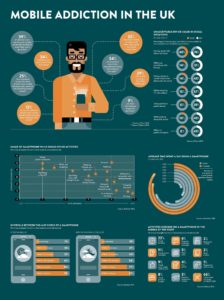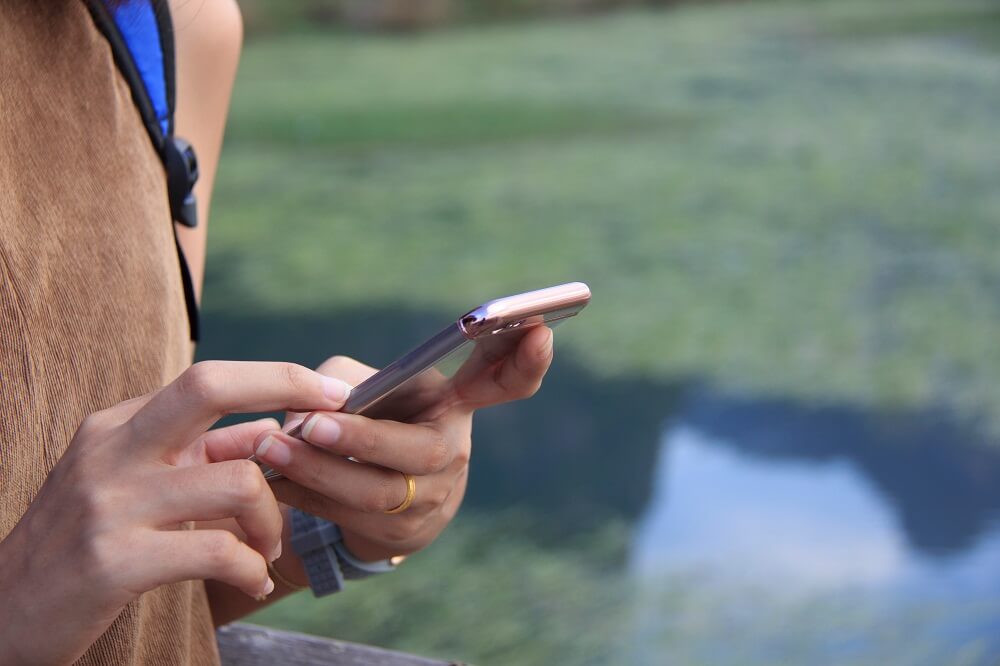It is undeniable that smartphones have been one of the most significant technological innovations of the last decade. In spite of being a relatively new piece of technology, they have conquered different spheres of our life by making certain tasks faster as well as easier. The older generations still have a somewhat distant relationship with these devices, but the young minds exhibit a heavy dependency on these devices. To put things into perspective, a teenager would not even wake up early enough to see the light of day if not for his smartphone alarm.
Even though smartphones have changed the lives of people belonging to all age-groups, the newer generations have embedded smartphones in their lives to an extent that they are becoming lethal to their health as well as their mental ability. With the option of simply being able to save phone numbers instead of memorizing them, no one even bothers to try. The results of such reliance are often visible in history class (Mixed-up timelines). Well, I am not saying that everyone should abandon their smartphones altogether and start memorizing entire phonebooks. The point is that with information being so readily available, no one makes an effort to memorize things anymore.
The younger generation spends more time on their smartphones compared to their older counterparts. Conversely, they know more about them. They know how to use a certain set of features that a middle-aged man might never know. Parents are very highly worried about the addiction and a recent research shows that ‘Most parents check what their teen does online and on social media’.
Event the parents want their children to start learning tech related things like coding from early age itself. However, without harboring stereotypes, let’s just talk a bit about the negative health impact of the “symbiotic relationship” that kids share with their smartphones. Nowadays, obesity is a household term, and technological advancement can be termed as one of the major responsible factors for it being so. Kids in today’s day and age would much rather play 100 levels of kids app like Candy Crush than exercise for an hour.
Is Smartphone Addiction Real?
Yes! It is very real. “Nomophobia” is an actual medical term, which literally translates to “no mobile phone phobia”. The addiction patterns associated with smartphones are quite similar to patterns associated with substance abuse. The chemical changes caused in the brain by such addiction are also comparable. I’m sure you must have heard the instance of a person feeling as if his phone was vibrating when it actually wasn’t. Furthermore, prolonged separation from smartphones also causes anxiety in some people.
Kids these days prefer binge-watching a show on Netflix instead of going out to the library to read a book. A huge amount of information, as well as entertaining content, is easily accessible via smartphones. That deeply eliminates the desire to go outdoors to seek adventures. Subsequently, an entire generation is increasingly becoming a victim of smartphone addiction.
In order to understand the whole picture, let us have a look at a recent research on the Smartphone addiction in the UK.

Don’t for a minute think that any other country is any different, all the young generation of any country are on the same track when it comes to smartphone use.
To make things even worse, social media has become a platform where people deceptively portray themselves as larger than life itself. If you go through someone’s Instagram feed, you’re likely to think that they are living the dream. The constant pressure of creating a galvanizing image on social media is leading kids to a wide array of mental illnesses.
Smartphone addiction is a serious problem that needs to be dealt with as soon as possible. Otherwise, we’ll just be left generations of mindless zombies running rampant on our little blue planet.

What makes you addicted to a smartphone?
Now that we have established that smartphone addiction is a real phenomenon, let’s dive a bit into the causes behind it. If you make your child get rid of his phone for even a day, he/she is likely to cry their eyes out until midnight. The reason behind that is not as simple as all kids are brats. In fact, it is rather complex. The younger generations do not possess the necessary frame of mind required to survive without their phones. This unhealthy reliance forms an addiction pattern that causes a number of chemical changes in your child’s brain.
Actual studies have been conducted on the above-mentioned phenomenon. The brain of a person diagnosed with smartphone addiction harbors a different ratio of neurotransmitters when compared to that of a normal individual. More precisely, these chemical imbalances correlate with serious mental health problems like anxiety and depression.

So, what can you do to make things better and make your kids break free?
Well, you can’t force your kids to give up technology altogether. In the world we live in, even adults can’t afford to do that. In spite of all the negative impacts of smartphones, they do provide unparalleled value when it comes to education. So, what’s the available workaround? Well, monitor your kid’s smartphone usage by the means of a parental monitoring software. TiSPY is an amazing option to consider because it comes with a ton of features that really help you in keeping your child’s smartphone usage under check. Using TiSPY, you can monitor the activity of your kid on social media platforms like Facebook, Whatsapp, Viber, Line, Hike, Skype, Hangout, Tinder, Wechat Kik messages, and Mails. You can also monitor internet usage in general. Firstly, such monitoring software will give you an idea of how much time your child is spending on his/her smartphone. Secondly, it would even keep you aware of your child’s well-being on the internet. You can also track a cell phone location using any good Parental Monitoring and Control Software. In certain situations, that feature could prove to be very useful. So next time when your kid leaves the house, you can be worry free and know exactly where he/she is until they reach back home.
In a nutshell, by monitoring your child’s smartphone usage, you can make the necessary checks and balances before a smartphone rewires his/her brain.










